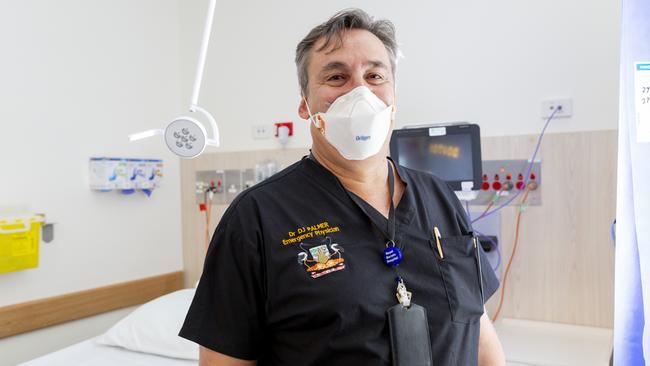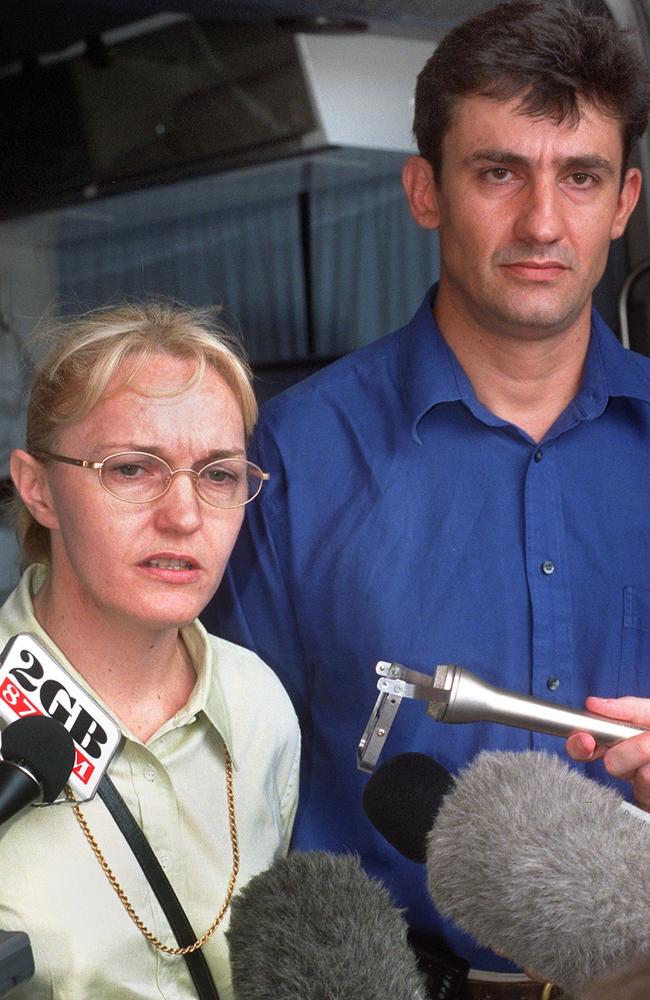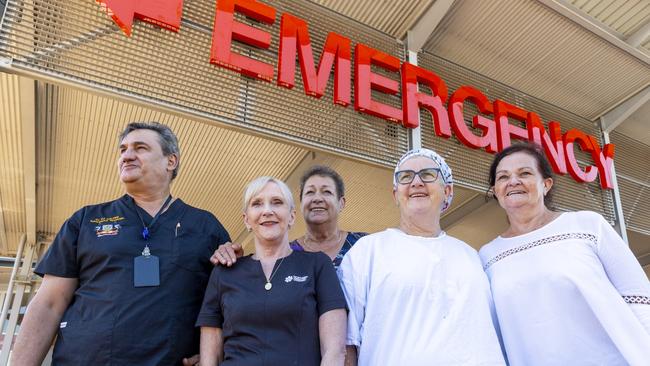Dr Didier Palmer recalls absolute teamwork during Bali bombings response at Royal Darwin Hospital
As the impact of the Bali bombings reverberated around the globe, Darwin hospital’s emergency department staff worked tirelessly to treat more that 60 victims.
Northern Territory
Don't miss out on the headlines from Northern Territory. Followed categories will be added to My News.
A few things stand out in Didier Palmer’s memory when he thinks back to mid-October 2002.
Sixty-five patients were transported to the floors of Royal Darwin Hospital (RDH) after two bombings at popular nightclubs in the Bali tourist mecca of Kuta.
Some 202 people were killed in the Bali bombing blasts, including 88 Australians.
Dr Palmer was working as part of the leadership team in the emergency department of the RDH when the hospital’s disaster plan was enacted.

He said the silence in the response was most striking at the time.
“When you walk into the room you could hear a pin drop,” he said.
“Everyone’s just doing their job and not needing to talk.
“There was no panic, no rush but everything happening extremely quickly and extremely quietly.”
Dr Palmer said the disaster brought the whole hospital together as staff worked in unison.
“Everyone was working together and had absolutely critical jobs — they might not have been intubating people or saving an airway, but every one of those things is just as important,” he said.
“It is all a team effort, you bring what you bring and I don’t think at the time you think about it.
“You just have a job in front of you so you stay awake for 30 hours and work and work and that’s what everyone else did.
“You lose that sense of self or ego, people don’t respect your badge they respect who you are and the job you’re there to do.”
Dr Palmer said a few things about the timing of the disaster turned out to be “fortuitous” for the staff.
“We had a critical care conference going on at Darwin at that moment and we’d just done an ED trauma course,” he said.
“We were also fortunate that a lot of our main staff weren’t on leave and we had a lot of lead time because we triggered (the disaster plan) really early.”

That lead time was used to rejig the rosters, clear out the ED and ICUs and created as much space for the patients they would receive as possible.
However, it turned out they were not as prepared for the injuries they would see as they may have hoped.
“In a normal event you get about 10 maybe 20 per cent of people injured and the rest are walking wounded so we were preparing for that,” Dr Palmer said.
“But everyone was critical injured, everyone was bed bound, everyone was really unwell.
“I had a person with 30 to 40 per cent burns who had to go into outpatients because that person was my 15th or 20th sickest person — we had really really sick people.”

Dr Palmer recalls all hands on deck, even receiving moral support from as far abroad as NSW.
“Someone from - I think it was Wagga Wagga - sent us more pizza than any team could possibly eat and it was fantastic because we were starving,” he said.
He said once the immediate threat and chaos had passed, the focus turned to debriefing and coming down from the adrenaline high.
“We lived through a time when there was one team and one mission then real life is a bit of a downer,” he said.
“We hadn’t seen 60 people with these injuries before and we knew it was a year or more of rehab and obviously it takes an emotional toll.”
He said they debriefed as a team rather than bringing in external counselling services so staff didn’t have to relive the experience.
Dr Palmer said a big part of the debrief was reflecting on what went well and what could be improved on should another disaster befall the hospital.
“Disasters can create capacity and that’s what worked for us,” he said.
“At the time I was the only emergency physician and now there’s six consultants.
“This hospital has grown from a district general hospital to a tertiary hospital which is what we need to be to treat the people of the Northern Territory.”
More Coverage
Originally published as Dr Didier Palmer recalls absolute teamwork during Bali bombings response at Royal Darwin Hospital





